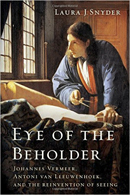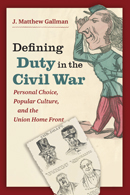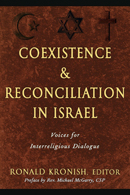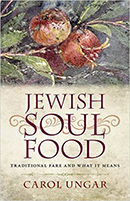On the Bookshelf
Faculty books

Harvard Business Review Press, $30
Matchmaker, matchmaker, make me a merger? As conglomerates become the new normal in business, ensuring true compatibility among all the entities that make up a blended organization is key to building a marriage that works. Gomes-Casseres, professor of international business at Brandeis International Business School, distills the strategy behind making and managing business alliances into three simple rules that bring logic and clarity to a complex process, and help CEOs sidestep doomed-to-fail relationships.
Faculty books

Doubleday, $27.95
If you’re a worrier, you may have trouble sleeping after you read this riveting examination of how terrifyingly exposed we are — as individuals and as citizens — to attacks by cyber criminals. Fortunately, Goodman, a global security adviser who has worked with Interpol, the U.N. and the U.S. government, has a net of solutions to offer, from advice on protecting your own data to ideas for an ambitious Manhattan Project-style effort to defeat hacking once and for all.

Norton, $27.95
In 1674, two residents of Delft dramatically changed how we view the world. Painter Johannes Vermeer did it with a camera obscura; scientist Antoni van Leeuwenhoek, a rudimentary microscope. Snyder, professor of philosophy at St. John’s University, offers a penetrating look at two geniuses in 17th-century Holland. By describing a time when people were suddenly seeing so much they’d never seen before — the minute effects of sunlight on white cloth, the microbes that swim in a drop of clear water — she sharpens our focus on how we use our eyes today.

Quartet Books, $14.50
"Et in Arcadia sum," goes the Latin phrase: Death is everywhere, even in Arcadia. And particularly in the Hotel Arcadia, a luxury spot in an unnamed city that has just been attacked by terrorists. Head lecturer in creative writing at London Metropolitan University, Singh builds tension and suspense in her third novel, as hotel staff and guests — including a famous war photographer, who checked in looking for some much-needed R&R — scramble to stay alive.

Simon & Schuster, $19.99
With his co-authors, Solman, the business and economics correspondent at “PBS NewsHour,” does millions of Americans a solid by explaining — cogently, thoroughly and, believe it or not, entertainingly — the baroque intricacies of the Social Security system. Going even further, he also tells you how to avoid leaving any of your hard-earned benefits on the table. You’re welcome, America.

University of Georgia Press, $32.95
Gallman, a history professor at the University of Florida, and his co-editor asked prominent historians to choose a favorite Civil War photograph and write about it. The essays — in concert with the photos, beautifully reproduced here — tell some amazing, often shattering wartime stories. (Gallman contributes his own piece about the well-known image of Lincoln and McClellan sitting together in a small tent, taken just a month before the president relieved the general of his duties.) A powerful communion of words and images, “Lens of War” brings a pivotal era fully to life.

University of North Carolina Press, $45
In another work coinciding with the 150th anniversary of the Civil War’s end (see the review above), Gallman surveys the North’s contemporary popular press to gauge ordinary people’s fears, hopes and preoccupations during the war. A fascinating look at what the folks back home were really talking about, from cheaply made Union uniforms, to draft dodgers, to the “appropriateness” of black regiments.

The New Press, $31.95
It’s so simple, isn’t it? We can choose to do bad things, or we can choose to be good. Not so fast, says Ravven, a professor of religious studies at Hamilton College. Research is proving that our conscious self isn’t always in firm control of our behavior, neurological functions can blur the line dividing right from wrong, and the idea of free will is more or less a fantasy. Responding to this new knowledge about the brain, Ravven attempts to construct an updated understanding of ethics, one that continues to hold humans responsible for the choices they make.

Jewish Lights, $16.99
Whenever you’re tempted to complain that getting older is no day at the beach, you might want to dip into this intelligent, reassuring volume by Rabbi Friedman, a nationally known guide for those looking to re-imagine life’s second half. Without shying away from frank appraisals of the losses that inevitably come, the book urges us to discover the possibilities embedded in growing older, including the opportunity “to become the person we were truly meant to be.”

Sourcebooks Landmark, $14.99
Teenager Ida Chagall lives a lush life in France with protective parents Bella and Marc — yes, that Marc, who often uses his daughter as a model when he paints. But the trio’s idyll is threatened when Ida falls in love with another Russian Jewish émigré, sparking the anger of her possessive father. Novelist Goldreich portrays the familial fallout beautifully, as the tensions and sorrow are exponentially compounded by the Nazi invasion of Paris.

University of Nebraska Press, $75
This is the fourth volume of an English translation of the Rabbinic Bible written for lay readers by Carasik, the creator of the weekly “Torah Talk” podcast and an adjunct assistant professor of biblical Hebrew at the University of Pennsylvania. Carasik gives the words of Rashi and other medieval Bible commentators a modern recasting, and provides annotations that put their words into revealing context.

Harvard Education Press, $29.95
Hess, director of education-policy studies at the American Enterprise Institute, writes to help teachers break free from feeling “muffled, stifled, ignored, undervalued and marginalized,” and find ways to create the schools their students need. His book offers plenty of hands-on ideas for classroom warriors eager to slip the bureaucratic traces and get back to the business of teaching kids.

Presa Press, $15.95
Stone writes poems that speak in plain language about the paeans and pains of womanhood. The book’s title comes from a poem about a train ride: “I hope I’m dangerous enough. Bad / breath, bitten cuticles, the wad of shredded / tissue I blow into, / anything / to make this loud, round, sweaty / stranger shrink / to his side of the seat.” This poet’s images and observations land with a bracing, refreshing sting.

Cornell University Press, $22.95
A reasoned counterargument to NIMBY protestations, this collection of essays assembled by Bloom, associate professor of social sciences at New York Institute of Technology, and his co-editors is a window into what public housing does and what it hopes to do. Bloom is awaiting the publication of two more books this year: “The Metropolitan Airport” (which he wrote) and “Affordable Housing in New York” (which he co-edited).

Princeton University Press, $27.95
As its subtitle succinctly explains, this book makes “Judaism’s case for why persons matter.” To do that, Mittleman, professor of Jewish philosophy at the Jewish Theological Seminary, examines the lessons of science and secular philosophy alongside the teachings of Judaism. Science and religion don’t exist as two distinct silos, he reminds us. They interact. And each one is never the whole story.

Self-published, $20
In many ways, death is a transition, not an end. The emotionally charged landscape walked by the living who must cope with the loss of a loved one is sensitively described by this anthology of writings on grief and healing. The 70-plus essays elicit smiles and tears in turn. Rabbi Elyse Goldstein ’78, P’11, contributes one of the heartfelt reflections.

Routledge, $42.95
Chair of the teacher education program at the University of San Francisco, Pace drills down into the embedded tensions and escalating pressures in American public-school classrooms, and issues a passionate, persuasive call for education reform. Her central concern: how to advance democratic education in an increasingly complex, multicultural society.

Self-published, $19.95
In September 2011, as Broussard walked across a Waltham street with his wife, he suffered a stroke in the part of the brain called Broca’s area, drastically reducing his ability to read, write and speak. This 12-month diary — most of the entries were recorded as voice memos — charts not only his determined recovery but his curiosity about how his fractured ability to communicate began to rebuild, little by little.

Paulist Press, $29.95
Ably compiled by Rabbi Kronish, this volume showcases essays by writers committed to the cause of reconciliation and peace building in Israel through interreligious dialogue, education and action. Kronish is the founding director of the Interreligious Coordinating Council in Israel, an umbrella organization for more than 60 Christian, Palestinian Muslim, and Jewish institutions, which works with youth, educators and opinion leaders to promote coexistence.
Brandeis University Press

$27.95
In Jewish kitchens, food is love. More often than not, it’s also a yummy symbol of some kind. To explore the back stories that inspired kreplach and kugel, Ungar serves up a fusion, pairing more than 100 classic recipes with a discussion of the cultural and religious roots of each dish. Examples range from the scroll-shaped cabbage rolls prepared for Simchat Torah to the beef tongue served during Rosh Hashana as a reminder to speak wisely during the new year.

$35
In the essays collected here, eminent scholars tip their hat to the research interests and personal activism of Reinharz, PhD’72, H’11, Brandeis president emeritus, by focusing on the ideological, political and scholarly contributions of a diverse range of people in Jewish history. The works explore five central themes: ideology and politics; statecraft; intellectual, social and cultural spheres; witnessing history; and the academy.
